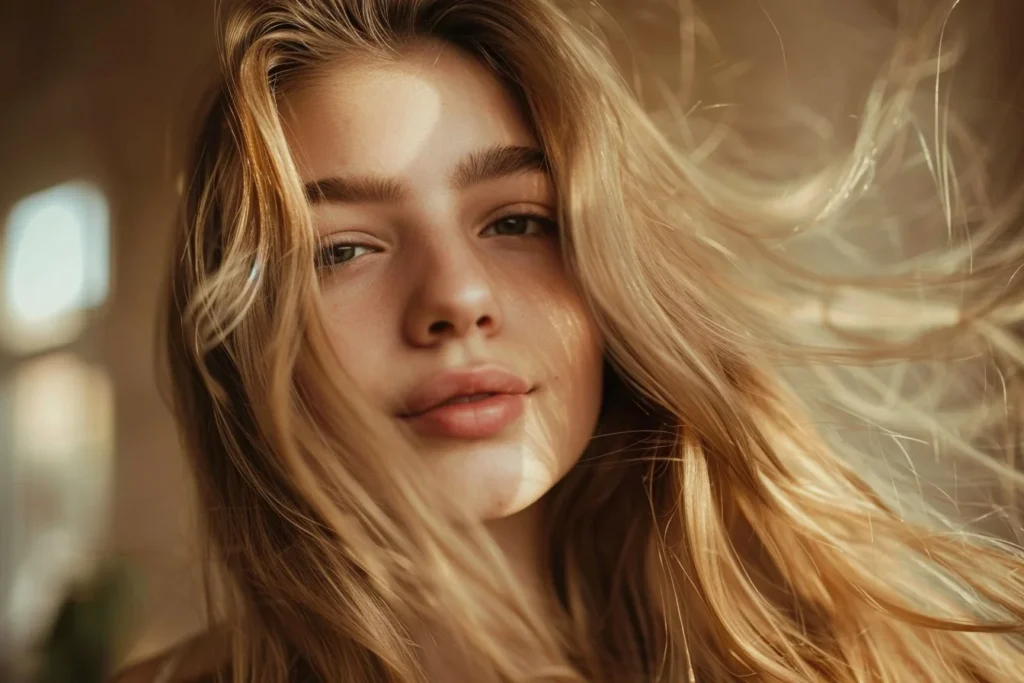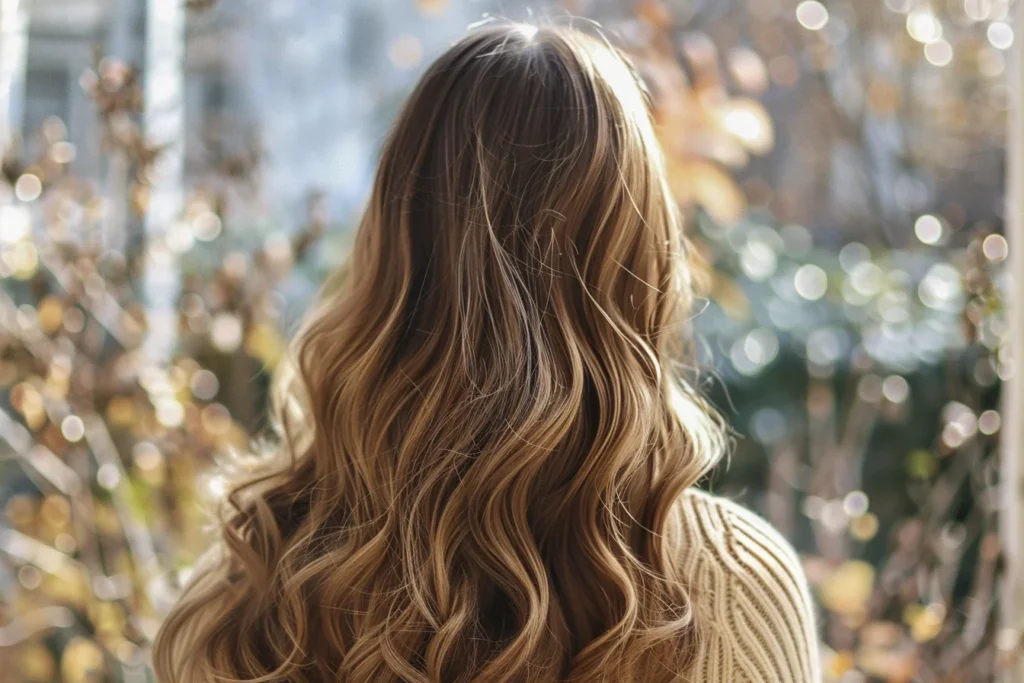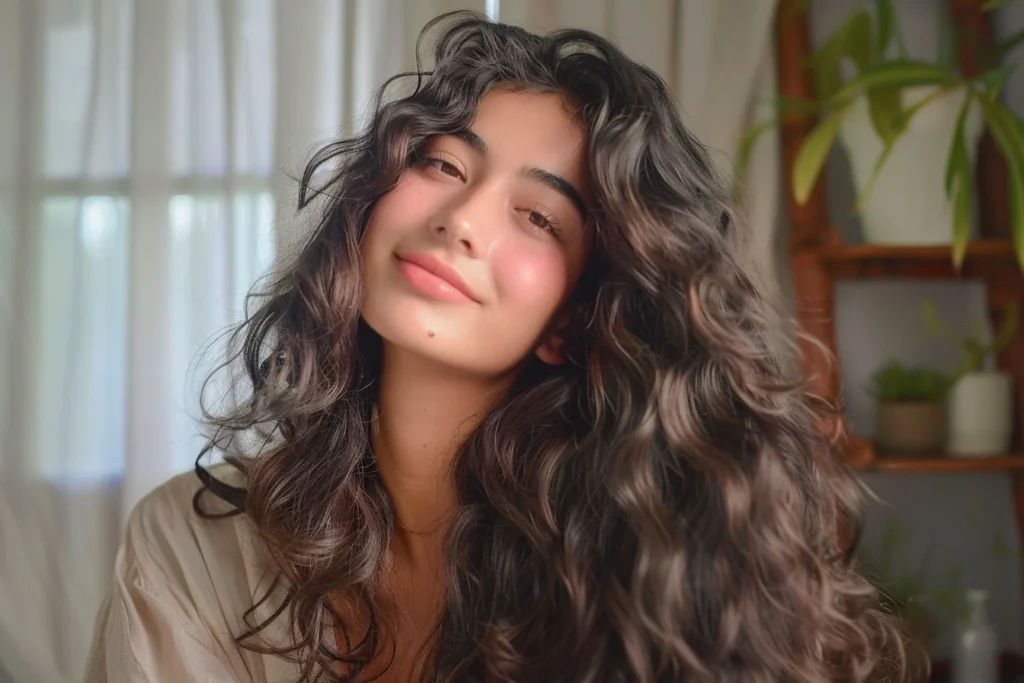Different cultures around the world consider hair to be a signal of beauty and good health. Unfortunately, it is difficult for many people to grow healthy hair, leading to an increase in hair supplements in the market.
Although they are often advertised as having the answer to healthy hair, there are skeptics who argue that these products lack scientific evidence behind their usage.
This leaves one wondering what hair vitamins are and whether they actually work.
Hair vitamins refer to supplements that claim to have benefits on hair health.
They may include ones with claims that they can make hair grow faster, give it more shine, increase its diameter and width, or even strengthen one’s locks.
The marketplace has various products some of whom contain ingredients similar to those:

- Biotin: It is known for promoting nail strength and healthy skin.
- Vitamin C & E: Antioxidant properties protect from oxidative stress.
- Collagen: A protein that helps support hair structure.
- Folic Acid: It plays a role in new cell production.
- Omega-3 Fatty Acids: Essential fats that promote overall hair health
There might also be other substances such as ginseng and ashwagandha added into some of these vitamin preparations thought by some people to aid in making the strands stronger. However, most of these products do not get any endorsement from medical professionals but by celebrities paid for their endorsements.
The Skeptic’s Response
Several skeptics argue that those taking a well-balanced diet do not need any additional vitamins for their hair growth.
Normally, nutrients required by the body are mostly found in food substances and when taken through extra dietary supplementation does not necessarily improve on better quality hairs at all times.
More so marketing campaigns and celebrity endorsements instead of strong scientific backing overemphasize how effective this can be sometimes.
Is There Any Need To Buy Hair Vitamins?

When you want to buy them, consider the following:
- Diet: Make sure you are eating enough fruits and vegetables, lean proteins, and healthy fats as they give the nutrients needed for your hair.
- Deficiencies: In case you feel that there is a lack of nutrients, it is advisable to consult a doctor who will investigate whether you need supplements.
- Ingredients: Check what is used in making hair vitamins as well as their amounts. This assists one not to exceed recommended daily intakes (RDIs) with certain nutrients.
- Scientific Evidence: There are many claims made by these products in the market which lack scientific support.
Which Nutrients Help Hair Growth?
There are several things influencing hair health including age, genetic makeup, hormones, medical conditions, diet, and stress just to mention but a few. As such it becomes difficult to identify the cause or causes of any problem.
The signs that indicate one has unhealthy hair are when there is shedding in the form of hair loss or thinning out, failure of growth, and dryness among others.

This can also be weakened with brittleness and a dull appearance.
In most cases, healthy dieting as well as lifestyle improvement could help a great deal in having stronger strands on your head.
It’s worth knowing that sufficient supplies of these nutrients may significantly add up to good condition and strength of your hair:
Important Nutrients and Their Roles in Hair Health
Protein
The building block of hair is a protein known as keratin. Protein deficient diet leads to weak and brittle hair and loss of color pigments from hair.
Vitamin A
The first part of a cell needs this vitamin for growth, it includes the fastest-growing tissue in our body i.e. hairs.
Also, vitamin A helps make an oily substance called sebum by skin glands. This keeps the scalp moisturized and hair healthy as well.
Diets without a sufficient amount of vitamin A may lead to loss of hair.
Vitamin B12
Vitamin B12 assists in red blood cell formation that carries oxygen to the follicles on your head. Vitamin B12 deficiency in your body will cause you to lose your hair eventually.

Vitamin C
It also makes collagen that helps keep our hair strong. It aids with the absorption of iron into our system which is significant for growing the hairs.
Vitamin D
Low levels of vitamin D are linked with alopecia or what we call baldness medically.
Vitamin D appears to be important for new follicle production, small pores where new strands could grow on your skull.
Vitamin E
Like vitamin C, it holds back oxidation thus promoting new strand growth within a short time period.
Biotin
Also called as vitamin B7, biotin strengthens keratin infrastructure making up basic protein constituting hairs, skins, and nails. Biotin deficiency may result in hair thinning and hair loss.
Iron
This is the number one nutritional deficiency worldwide and a well-known cause of alopecia referred to as telogen effluvium (TE), a type of hair loss that is often associated with disruption of the normal hair-growing cycle.
Selenium – It helps the body make use of proteins useful for growing hairs.
Zinc
Zinc plays a great role in relation to growth and repair of tissues found in hairs.
Furthermore, it ensures that the oil glands around your follicles are functioning properly. The symptoms for this include having fewer zinc strands than you should have.
Efficacy of Hair Vitamins and Supplements

Despite widespread usage, there is limited clinical evidence supporting the efficacy of hair vitamins or dietary supplements in treating various types of hair diseases.
Most studies suggest that these products are only effective for people with nutrient deficiencies causing their specific kind of hair condition.
For example, 38% of women with alopecia were found to be biotin deficient according to research conducted in 2016.
Similarly, a study published in 2013 indicated lower iron levels among women experiencing baldness compared to those without such issues.
On the other hand, deficiencies in biotin or vitamin C which are commonly included in these supplements are extremely rare conditions.
Therefore, taking them when you do not have any insufficiency may not improve your hair’s texture nor promote growth either.
Furthermore, low levels of evidence support the use of nutricosmetics containing iron, biotin, B vitamins, vitamin C, zinc, selenium, and folic acid in improving hair health or promoting its growth.
Besides some other supplements may even cause more hair loss or nutrient toxicity.
How to Achieve Healthy Hair

Rather than purchasing costly hair vitamins; it is better to concentrate on consuming a healthy diet rich in various colorful vegetables and fruits such as whole grains, proteins, and healthy fats.
Which will ensure that you have all the necessary nutrients required by your body for proper hair growth.
RELATED: Hair Benefits of Green Tea
In addition to this focus also on other areas of your general well-being like adequate sleep, manageable stress levels, and regular exercise.
If your body functions well it will be able to sufficiently support nonessential activities like growing long healthy hair.
If none of these lifestyle modifications help, consult a healthcare professional who can work with you to explore any other potential underlying issues.
The Bottom Line
Currently, there are no clinical studies showing that hair vitamins and supplements promote hair growth prevent hair loss or improve other aspects of healthy hair like dryness, shine, and thickness. In cases where poor nutrition causes unhealthy-looking hair.
RELATED: 24 Stunning Long Curtain Bangs Hairstyles with Straight Hair
Taking dietary supplements could help. It might be just increasing calories from fat and protein otherwise linked to balding situations in case nothing works towards avoiding them.

